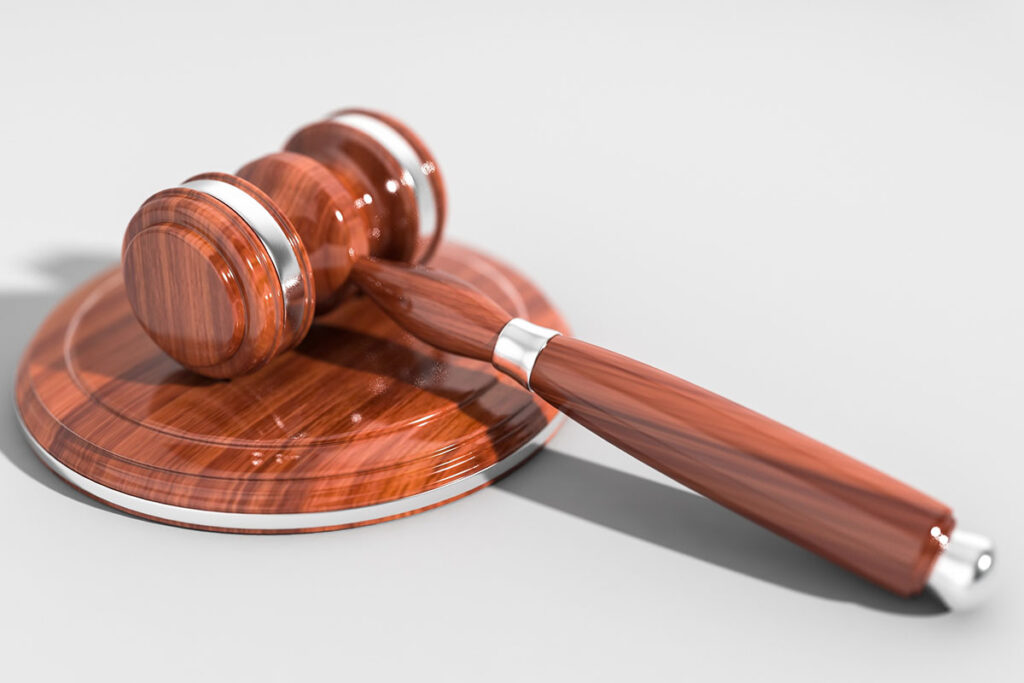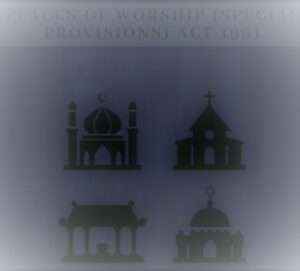Blog

Removal of person about to commit offences-
Delhi Police Act, 1978
Section 47- Removal of persons about to commit offences:
Whenever it appears to the Commissioner of Police:-
(a) That the movements or acts of any person are causing
or are calculated to cause alarm, danger or harm to
person or property; or
(b) That there are reasonable grounds for believing that
such person is engaged or is about to be engaged in the
commission of an offence involving force or violence or
any offence punishable under Chapter XII, Chapter XVI,
Chapter XVII or Chapter XXII of the Indian Penal Code
(45 of 1860) or under section 290 or sections 489A to
489 E (both inclusive) of that code or in the abetment of
any such offence; or
(c) that such person—
(i) is so desperate and dangerous as to render his
being at large in Delhi or in any part thereof
hazardous to the community; or
(ii) has been found habitually intimidating other
persons by acts of violence or by show of force;
or
(iii) habitually commits affray or breach or peace or
riot, or habitually makes forcible collection or
subscription or threatens people for illegal
pecuniary gain for himself or for others; or
(iv) has been habitually passing indecent remarks on
women and girls, or teasing them by overtures,
and that in the opinion of the Commissioner of
Police witnesses are not willing to come forward
to give evidence in public against such person by
reason of apprehension on their part as regards
the safety of their person or property, the
Commissioner of Police may, by order in writing
duly served on such person, or by beat of drum or
otherwise as he thinks fit, direct such person to so
conduct himself as shall seem necessary in order
to prevent violence and alarm or to remove
himself outside Delhi or any part thereof, by such
route and within such time as the Commissioner
of Police may specify and not to enter or return to
Delhi or part thereof, as the case may be, from
which he was directed to remove himself.
Explanation—A person who during a period
within one year immediately preceding the
commencement of any action under this
section has been found on not less than three occasions to have committed or to have been
involved in any of the acts referred to in this
section shall be deemed to have habitually
committed that act.

THE PLACES OF WORSHIP (SPECIAL PROVISIONS) ACT, 1991
ACT NO. 42 OF 1991
An Act to prohibit conversion of any place of worship and to provide for the maintenance of the religious character of any place of worship at it existed on the 15th day of August, 1947, and for matters connected therewith or incidental thereto.
BE it enacted by Parliament in the Forty-second Year of the Republic of India as follows:-
1. Short tile, extent and commencement.- (1) This Act may be called the Places of Worship (Special Provisions) Act, 1991.
(2) It extends to the whole of India except the State of Jammu and Kashmir.
(3) The Provisions of sections 3, 6 and 8 shall come into force at once and the remaining provisions of this Act shall be deemed to have come into force on the 11th day of July, 1991.
2. Definition- In this Act, unless the context otherwise requires,-
(a)”commencement of this Act” means the commencement of this Act on the 11th day of July, 1991;
(b) “conversion”, with its grammatical variations, includes alteration or change whatever nature;
(c) “place of worship” means a temple, mosque, gurudwara, church, monastery or any other place of public religious worship of any religious denomination or any section thereof, by whatever name called.
3. Bar of conversion of places of worship.- No person shall convert any place of worship of any religious denomination or any section thereof into a place of worship of a different section of the same religious denomination or of a different religious denomination or any section thereof.
4. Declaration as to the religious character of certain places of worship and bar of jurisdiction of courts, etc.- (1) It is hereby declared that the religious character of a place of worship existing on the 15th day of August, 1947 shall continue to be the same as it existed on that day.
(2) If, on the commencement of this Act, any suit, appeal or other proceeding with respect to the conversion of the religious character of any place of worship, existing on the 15th day of August, 1947, is pending before any court, tribunal or other authority, the same shall abate, and no suit, appeal or or other proceeding with respect to any such matter shall lie on or after such commencement in any court, tribunal or other authority:
Provided that if any suit, appeal or other proceeding, instituted or filed on the ground that conversion has taken place in the religious character of any such place after the 15th day of August. 1947, is pending on the commencement of this Act, such suit, appeal or other proceeding shall be disposed of in accordance with the provisions of sub-section (1).
(3) Nothing contained in sub-section (1) and sub-section (2) shall apply to,-
(a) any place of worship referred to in the said sub-sections which is any ancient and historical monument or an archaeological site or remains covered by the Ancient Monuments and Archaeological Sites and Remains Act, 1958 (24 of 1958) or any other law for the time being in force;
(b) any suit, appeal or other proceeding, with respect to any matter referred to in sub-section (2), finally decided, settled or disposed of by a court, tribunal or other authority before the commencement of this Act;
(c) any dispute with respect to any such matter settled by the parties amongst themselves before such commencement;
(d) any conversion of any such place effected before such commencement by acquiescence;
(e) any conversion of any such place effected before such commencement which is not liable to be challenged in any court, tribunal or other authority being barred by limitation under any law for the time being in force.
5. Act not to apply to Ram Janma Bhumi-Babri Masjid.- Nothing contained in this Act shall apply to the place or place of worship commonly known as Ram Janma Bhumi-Babri Masjid situated in Ayodhya in the State of Uttar Pradesh and to any suit, appeal or other proceeding relating to the said place or place of worship.
6. Punishment for contravention of Section 3.- (1) Whoever contravenes the provisions of section 3 shall be punishable with imprisonment for a term which may extend to three years and shall also be liable to fine.
(2) Whoever attempts to commit any offence punishable under sub-section (1) or to cause such offence to be committed and in such attempt does any act towards the commission of the offence shall be punishable with the punishment provided for the offence.
(3) Whoever abets, or is a party to a criminal conspiracy to commit, an offence punishable under sub-section (1) shall, whether such offence be or be not committed in consequence of such abetment or in pursuance of such criminal conspiracy, and notwithstanding anything contained in section 116 of the Indian Penal Code (45 of 1980), be punishable with the punishment provided for the offence.
7. Act to override other enactments.- The provision of this Act shall have notwithstanding anything inconsistent therewith contained in any other law for the time being in force or any instrument having effect by virtue of any law other than this Act.
